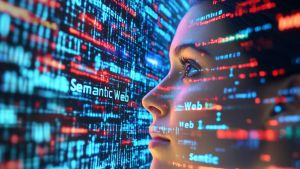Artificial Intelligence (AI) is no longer just a concept from science fiction; it has become an integral part of our daily lives, transforming industries, business models, and even the way we interact with the world around us. At the heart of this revolution are AI development company—organizations dedicated to creating, refining, and deploying artificial intelligence technologies. These companies are playing a crucial role in advancing AI applications that range from machine learning algorithms to natural language processing, all while shaping the future of technology itself.
This article explores the role of AI development companies, how artificial intelligence is being used across various sectors, and what the future holds for this transformative technology. We will also address the challenges these companies face and the ethical concerns that accompany the rise of AI technologies.
1. What is an AI Development Company?
An AI development company is an organization focused on the research, development, and deployment of artificial intelligence technologies. These companies build AI systems that can learn from data, make decisions, and automate tasks that would typically require human intelligence. These systems include a wide array of technologies, such as machine learning (ML), natural language processing (NLP), computer vision, and robotics.
The primary mission of an AI development company is to create tools that improve decision-making, increase operational efficiency, and solve complex problems across various industries. From building smarter AI assistants to developing autonomous vehicles, AI companies are shaping the future of how we live and work.
2. Key Contributions of AI Development Companies
AI development companies are creating innovations that significantly impact a variety of industries. These technologies are revolutionizing sectors ranging from healthcare to transportation. Here are some key industries benefiting from artificial intelligence:
a. Healthcare
AI in healthcare is making an enormous impact, from improving patient care to accelerating drug discovery. AI-powered systems help doctors analyze medical images with greater accuracy, assist in diagnosing diseases at an early stage, and recommend personalized treatments. Companies in the AI space are also developing robotic surgery assistants, medical chatbots, and AI-driven diagnostic tools, enhancing the efficiency of healthcare services globally.
b. Finance
In the financial sector, AI is improving fraud detection, enabling algorithmic trading, and providing personalized financial advice. AI-powered tools can analyze vast amounts of financial data in real time, identify patterns, and help investors make data-driven decisions. Furthermore, chatbots and virtual assistants are enhancing customer service by offering instant support and improving client engagement.
c. Retail
AI is transforming the retail experience by enabling businesses to offer highly personalized services. By analyzing consumer behavior, AI systems recommend products tailored to individual preferences. Additionally, AI-driven inventory management helps businesses track stock, predict demand, and optimize supply chains, reducing costs and improving efficiency.
d. Transportation
One of the most exciting applications of AI is in the development of autonomous vehicles. Self-driving cars, drones, and even autonomous ships are powered by AI technologies that allow machines to navigate and make decisions in real time. Companies working on autonomous vehicles use AI systems to process data from cameras, sensors, and radar, allowing vehicles to detect obstacles, follow traffic laws, and even make real-time decisions to improve safety.
e. Education
Artificial intelligence is making strides in the education sector by creating personalized learning experiences. AI-powered learning platforms analyze student data to tailor lesson plans and identify areas where a student might need extra attention. These platforms also offer real-time feedback, ensuring that each student learns at their own pace and improves their overall academic performance.
f. Manufacturing
In manufacturing, AI is enabling predictive maintenance, quality control, and process automation. Machine learning models predict when equipment will fail, allowing businesses to perform maintenance before problems arise, minimizing downtime. Additionally, AI is being used to optimize production schedules and enhance quality assurance by detecting defects or anomalies in the manufacturing process.
3. Key Technologies in AI Development
AI development companies utilize a variety of cutting-edge technologies to build intelligent systems that mimic human-like capabilities. Some of these core technologies include:
a. Machine Learning (ML)
Machine learning is a subset of AI that involves training algorithms to recognize patterns and make decisions based on data. It allows systems to learn from experience without being explicitly programmed. Machine learning powers applications like recommendation engines (e.g., Netflix and Amazon), fraud detection systems, and autonomous vehicles.
b. Natural Language Processing (NLP)
NLP enables machines to understand, interpret, and generate human language. This technology is the backbone of voice-activated assistants such as Siri and Alexa, as well as chatbots that handle customer service inquiries. NLP also plays a vital role in sentiment analysis, text summarization, and language translation.
c. Computer Vision
Computer vision allows AI systems to interpret and understand visual information from the world, much like the human eye. AI-powered computer vision is used in applications like facial recognition, object detection, and autonomous driving, where machines need to process and analyze images or video in real time.
d. Deep Learning
Deep learning is a type of machine learning that uses artificial neural networks to model complex patterns in large datasets. This is the technology behind many advanced AI applications, including speech recognition, image recognition, and natural language processing.
e. Robotics
AI and robotics are closely linked, as intelligent robots can perform physical tasks autonomously. AI-driven robots are used in a variety of industries, including manufacturing, healthcare, and logistics, to automate repetitive tasks, improve efficiency, and reduce human error.
4. The Future of AI Development Companies
The future of AI is incredibly promising, with emerging technologies and new possibilities driving the development of even more advanced AI systems. Here are some trends shaping the future of AI development:
a. AI Ethics and Governance
As AI becomes more integrated into society, the ethical considerations surrounding its use are becoming increasingly important. AI development companies are now focusing on ensuring that AI systems are fair, transparent, and accountable. Addressing issues like bias in AI algorithms, data privacy concerns, and the potential for job displacement due to automation are top priorities.
b. Explainable AI (XAI)
A growing focus is on creating AI systems that are more transparent and understandable. Explainable AI aims to make AI decision-making processes clearer to humans, ensuring that AI systems are not just “black boxes.” This is particularly important in sectors like healthcare, where understanding the reasoning behind AI-driven decisions is crucial.
c. AI for Social Good
AI is increasingly being applied to tackle global challenges such as climate change, disaster response, and social inequality. For example, AI can help predict and mitigate natural disasters, optimize energy consumption, and improve public health systems.AI development companies are exploring ways to use their technologies to create a more sustainable and equitable world.
d. Human-AI Collaboration
Rather than replacing humans, AI is seen as a tool to enhance human capabilities. The future of AI involves more collaborative systems where AI supports human decision-making, augments productivity, and helps solve complex problems. This collaboration can be seen in fields such as healthcare, where AI assists doctors in diagnosing conditions and suggesting treatments, but the final decision rests with the human expert.
5. Challenges Faced by AI Development Companies
Despite the immense potential of AI, development companies face several challenges as they continue to innovate and deploy AI technologies:
a. Data Privacy and Security
AI systems rely heavily on data, which can raise concerns about data privacy and security. Ensuring that sensitive data is handled responsibly and securely is a major challenge for AI development companies. Regulations like the General Data Protection Regulation (GDPR) in Europe are shaping how AI companies collect, store, and process data.
b. Talent Shortage
The demand for skilled AI professionals far exceeds the supply, creating a talent gap in the industry. AI development companies often struggle to recruit and retain top talent, which can hinder their ability to innovate and keep up with the rapid pace of technological advancements.
c. Bias and Fairness
AI systems can inherit biases from the data they are trained on, leading to unfair or discriminatory outcomes. Ensuring fairness and reducing bias in AI models is an ongoing challenge. Developers must work to identify and mitigate these biases to ensure that AI systems are equitable and inclusive.
d. Regulation and Legislation
As AI continues to evolve, so too must the regulatory frameworks that govern its use. Governments and regulatory bodies are still working on establishing comprehensive laws and guidelines for AI development and deployment. AI companies must stay ahead of changing regulations and ensure compliance.
6. Conclusion
AI development company are playing a central role in the future of artificial intelligence and technology. Their innovations are revolutionizing industries, creating new opportunities, and solving complex global challenges. As AI continues to evolve, these companies must address the ethical, technical, and regulatory challenges associated with the development and deployment of AI systems.
The future of artificial intelligence is full of promise, with AI set to play an increasingly significant role in shaping the world. By fostering innovation, collaboration, and responsible development, AI development companies can help ensure that this transformative technology is used for the betterment of society, advancing human capabilities and creating a more sustainable and equitable future.






![Funny Xbox Gamertags [580+ Clever Ideas]](https://namesmunch.com/wp-content/uploads/2024/04/funny-xbox-gamertags-580-clever-ideas-300x169.jpg)




